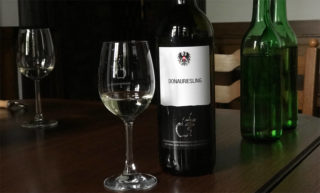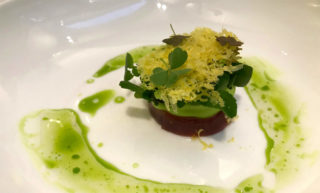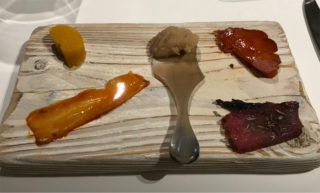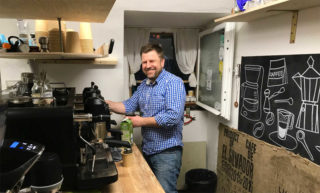Affected by Politics and Folk
Sinfonieorchester Basel
20 October 2021
Pablo Ferrández, Violoncello
Krzysztof Urbański, Conductor
Wojciech Kilar - Orawa for Strings
Witold Lutosławski - Cello Concerto
Antonín Dvořák - Symphony 7 in D Minor op. 70
The life of the Polish composer Witold Lutosławski (1913-1994) was marked by all the major events of the twentieth century. His father was executed in Moscow in the aftermath of the First World War and the Russian Revolution. His brother died in the Second World War and later the communist party tightened its grip on Lutosławski’s creative freedom. But the composer denied his music was influenced by political events. Nonetheless, it wasn’t until after Stalin’s death, when there was a certain relaxation of the rules in the Soviet Union and its satellite states, that Lutosławski’s creative genius started to unfold.
Mstislav Rostropovich, the legendary cellist to whom Lutosławski dedicated his Cello Concerto and who premiered it in London in 1970, was convinced the composer’s work quite overtly reflected on living under communist rule. The cello, in his opinion, personified the free individual voice, whereas the orchestra symbolised the oppressive system.
While Stravinsky and Bartók still heavily influenced his early music, later in life Lutosławski was able to deploy new musical techniques. He is particularly associated with a form of music where orchestra members are supposed to play certain musical material without a precise indication of a rhythm and speed, thus generating new musical textures. As it introduced a determinate amount of freedom to the performer, this type of music was called ‘limited aleatoricism’.
Lutosławski shared not only a penchant for the avant-garde, but also for folk music with his countryman, the composer Wojciech Kilar (1932-2013). Orawa, Kilar’s composition on this month’s program, is clearly more indebted to the latter. It is part of a collection of four compositions, named the Tatra Polyptich, inspired by the music from the region of Podhole in the foothills of the Tatra Mountains in southern Poland. Given its location on the border with Slovakia and the ebb and flow of immigrants and different rulers in the region, Podhole music has always been open and adaptable to influences from elsewhere. These were also brought back to Podhole by seasonal labourers.
Podhole music consists mostly of songs and dances using voice and strings. In Orawa, named after the river that runs through the Podhole region, it is easy to detect folk dance melodies and rhythms. The principle violinist sets out the main melody and leads a group of string instruments, which play some of the whirling passages and different rhythmic accompaniments. With a wistful tune the principle cellist seems to evoke the Podhole landscape that would induce homesickness if it weren’t for the pulsating notes in the other instruments.
Orawa certainly has cinematographic qualities, but the polyptych wasn’t perceived as such.
However, while Lutosławski wrote incidental pop songs (using a pseudonym) to make ends meet, Kilar built his career largely on film music, although ‘serious’ music always remained a part of his output. Famous movies for which Kilar produced the musical score are The Pianist by Roman Polanski and Coppola’s version of Dracula.
The concert concludes with the seventh symphony by Dvořák (1841-1904), who may well be considered a pioneer of the use of folk music in western classical music. And so, there is a direct line from the famous Czech composer via Bartók to the Lutosławski and Kilar.
These English program notes have been published in the magazine of the Sinfonieorchester Basel.
Main photo of cellist Pablo Ferrández by Igor Studio, Barcelona







Comments